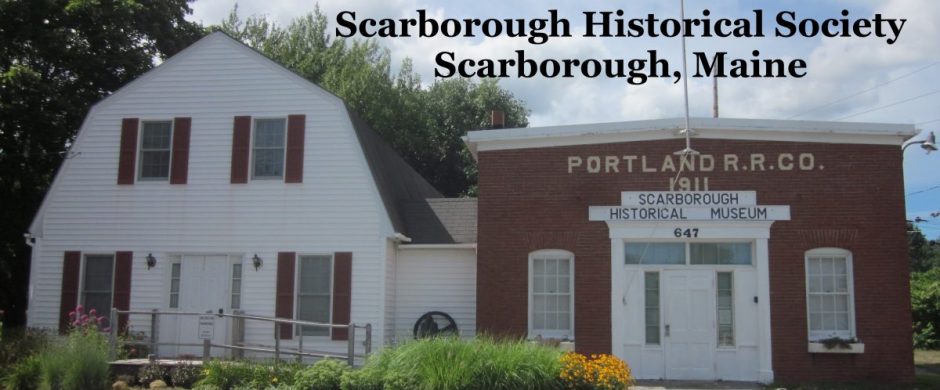[Transcription of a letter to the editor, ca. 1902]
I was much interested in the arguments of the men of Scarboro at Augusta yesterday, as to what the electric road could and would do for that ancient town. It is somewhat curious that a town situated so near to a populous city of 15,000 inhabitants, as Greater Portland may be considered. Should be dwindling in population and wealth, as the town has been doing as far as regards the strictly agricultural sections. Tumble down and abandoned farm building are to be found in every part of the upper section of the town. There is no town in the State that is richer in stirring and romantic historical associations that Scarboro, and none that by the variety of its scenery would attract more tourists or the wealthy urbanites, who seeks more room and purer air than is afforded by the congested confines of a great city.
The hills in upper Scarboro almost rise to the dignity of mountains, while the marshes along the coast, where once roamed the sanguinary* Squanto and his murderous myrmidons, afford a variety of scenery and land adapted for hunting and fishing that is unique and unlike other towns in the state. To one who is familiar with the past glories Scarboro there is something pathetic in its present decay and almost desolation.
I drove the other day through the village of Dunstan and it is hard to realize that ‘Sleepy Dunstan’ as it is sometimes referred to was once the rival of Portland in population and business, and was the birthplace of a president of Harvard College, a Senator of the United States and minister to England, a Congressman, the first Governor of the State, and judge of probate of the county for Twenty years, and other men who played an important and honorable part in the early history of the country during the colonial, revolutionary and earlier years of the last century. The rural mail delivery system, electric roads when we shall soon have because it is right we should, will restore the ancient prestige and importance of Scarboro, and while I am second to no one in my respect for good preaching that calls sinners to repentance and good works in this present life. I honesty believe that as a civilizer, by obliterating the distinction between the city and the country, the electric road and the Rural free delivery will do more good than all the sermons that were ever preached.
Corbett declared more than a hundred years ago the London was a hideous wen upon the fair face of England, and our cities bid fair to rival London in kind, if not in degree, while many of our rural communities were moral, spiritual, political and intellectual decay reigns triumphant, present a picture as forbidding to the social philosopher as the abominations of city life.
The electrics and the free delivery will hasten the time when there will be no city and no country, and who shall stand in the way of this consummation so devoutly to be wished for.
W. H. McLaughlin
* involved in or causing much bloodshed
This is the transcription of a clipping from The Daily Eastern Argus newspaper, published in Portland. The date is unknown. It predates the establishment of the Portland Railroad Company trolley service through Scarborough in 1903. This editorial was written in response to those who opposed the trolley line.
Transcription by Rodney Laughton, November 2019.


